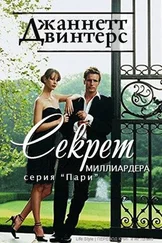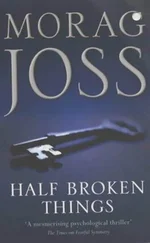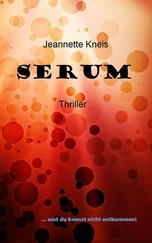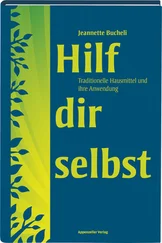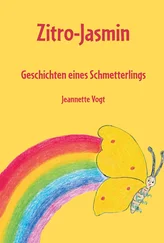I didn’t have an answer. Mom could say that in hindsight, but it seemed to me that when you were in the middle of something, it was awful hard to figure out what part of it was God’s will and what wasn’t.
I ASKED DAD IFhe believed that everything that happened was God’s will.
“Is and isn’t,” he said. “God deals us all different hands. How we play ’em is up to us.”
I wondered if Dad thought that God had dealt him a bad hand, but I didn’t feel it was my place to ask. From time to time, Dad mentioned the horse kicking him in the head, but none of us ever talked about his gimp leg or his trouble speaking.
Dad’s speech impediment did make it sound a little like he was talking underwater. If he said, “Hitch up the carriage,” it sounded to most people like “Ich’p uh urrj,” and if he said, “Mama needs to rest,” it sounded like “Uhmu neesh resh.”
Toyah, the nearest little town, was four miles away, and sometimes when we went there, the kids followed Dad around imitating him, which made me want to thrash them something fierce. A lot of times, particularly when Mom was there, too, Buster, Helen, and I could do little more than glare at them. Dad usually acted like those kids didn’t exist-after all, he could hardly run for his gun to shoot them, like he had with that tinker-but once, at the Toyah stable, when a couple of them were especially loud, I saw him glance down with a wounded look. While he and Buster were loading the wagon, I went back to the stable and tried to explain to those kids that they were hurting people’s feelings, but all they did was snicker, so I shoved them into the manure pile and ran. I’d never done a bad thing that gave me so much satisfaction. My only regret was that I couldn’t tell Dad about it.
What those kids didn’t understand about Dad was that, although his speech did sound sort of marbly, he was smart. He’d been taught by a governess, and he was all the time reading books on philosophy and writing long letters to politicians like William Taft, William Jennings Bryan, and Frederick William Seward, who had been Abraham Lincoln’s assistant secretary of state. Seward even wrote back, letters Dad treasured and kept in a locked tin box.
When it came to the written word, no one could string together sentences like Dad. His handwriting was elegant, if a little spidery, and his sentences were long and extravagant, filled with words like “mendacious” and “abscond” that most of the folks in Toyah would need a dictionary to understand. Two of Dad’s biggest concerns in his letters were industrialization and mechanization, which he felt were destroying the human soul. He was also obsessed with Prohibition and phonetic spelling, both of which he saw as cures for mankind’s tendency toward irrational behavior.
Dad had come of age seeing too many liquored-up people blazing away at one another. His pa had sold liquor from the store he ran on the Rio Hondo ranch, but his pa also once had to shoot a drunk who tried to shoot him. Alcohol, Dad said, made Indians and Irishmen crazy. After his pa was killed, Dad axed the store’s liquor barrels, and to Apache’s deep regret, he didn’t allow anything stronger than tea on the ranch.
The inconsistent spelling of words in the English language also vexed Dad to no end. Digraphs such as “sh” and “ph” infuriated him, and silent letters made him grieve. If words were simply spelled the way they were pronounced, he argued, pretty much anyone who learned the alphabet could read, and that would virtually wipe out illiteracy.
Toyah had a one-room schoolhouse, but Dad thought that the teaching there was second-rate and he could do better tutoring me. Every day after lunch, when the sun was too hot to work outside, we did lessons-grammar, history, arithmetic, science, and civics-and when we were done, I tutored Buster and Helen. Dad’s favorite subject was history, but he taught it with a decidedly west-of-the-Pecos point of view. As the proud son of an Irishman, he hated the English Pilgrims, whom he called “Poms,” as well as most of the founding fathers. They were a bunch of pious hypocrites, he thought, who declared all men equal but kept slaves and massacred peaceful Indians. He sided with the Mexicans in the Mexican-American war and thought the United States had stolen all the land north of the Rio Grande, but he also thought the southern states should have had as much right to leave the union as the colonies had to leave the British Empire. “Only difference between a traitor and a patriot is your perspective,” he said.
* * *
I loved my lessons, particularly science and geometry, loved learning that there were these invisible rules that explained the mysteries of the world we lived in. Smart as that made me feel, Mom and Dad kept saying that even though I was getting a better education at home than any of the kids in Toyah, I’d need to go to finishing school when I was thirteen, both to acquire social graces and to earn a diploma. Because in this world, Dad said, it’s not enough to have a fine education. You need a piece of paper to prove you got it.
MOM DID HER BESTto keep us kids genteel. While I was teaching Buster and Helen, she brushed my hair one hundred strokes, careful to pull backward away from my scalp, putting marrow and lanolin into it to increase its luster. At night, she curled it into ringlets with little pieces of paper she called papillotes. “A lady’s hair is her crowning glory,” she said, and she was always going on about how my widow’s peak was my best feature, but when I looked in the mirror, that little V of hair at the top of my forehead didn’t seem like much to bank on.
Even though we lived four miles from Toyah and days would go by without seeing anyone outside the family, Mom worked very hard at being a lady. She was dainty, only four and a half feet tall, and her feet were so small that she had to wear button-up boots made for girls. To keep her hands elegantly white, she rubbed them with pastes made from honey, lemon juice, and borax. She wore tight corsets to give her a teeny waist-I helped her lace them up-but they had the effect of causing her to faint. Mom called it the vapors and said it was a sign of her high breeding and delicate nature. I thought it was a sign that the corset made it hard to breathe. Whenever she’d keel over, I’d have to revive her with smelling salts, which she kept in a crystal bottle tied around her neck with a pink ribbon.
Mom was closest to Helen, who had inherited her tiny hands and feet and her frail constitution. Sometimes they read poetry to each other, and in the stifling midafternoon heat, they’d simply lie together on Mom’s chaise longue. But while she was close to Helen, she completely doted on Buster, the only son, whom she considered the future of the family. Buster was a rabbity little kid, but he had an irresistible smile, and maybe to compensate for Dad’s speech impediment, he was one of the fastest and smoothest talkers in the county. Mom liked to say Buster could charm the sage off the brush. She was always telling Buster there were no limits on what he could become-a railroad magnate, a cattle baron, a general, or even the governor of Texas.
Mom didn’t quite know what to make of me. She feared she might have trouble marrying me off because I didn’t have the makings of a lady. I was a little bowlegged, for one thing. Mom said it was because I rode horses too much. Also, my front teeth jutted out, so she bought me a red silk fan to cover my mouth. Whenever I laughed or smiled too big, Mom would say, “Lily, dear, the fan.”
Since Mom wasn’t exactly the most useful person in the world, one lesson I learned at an early age was how to get things done, and this was a source of both amazement and concern for Mom, who considered my behavior unladylike but also counted on me. “I never knew a girl to have such gumption,” she’d say. “But I’m not too sure that’s a good thing.”
Читать дальше

